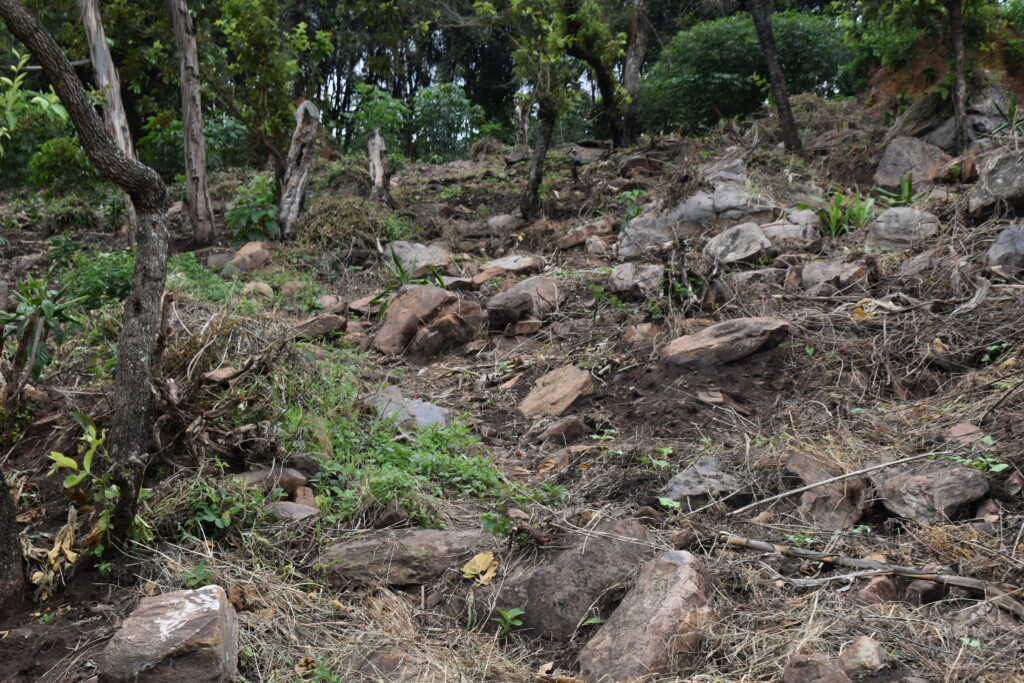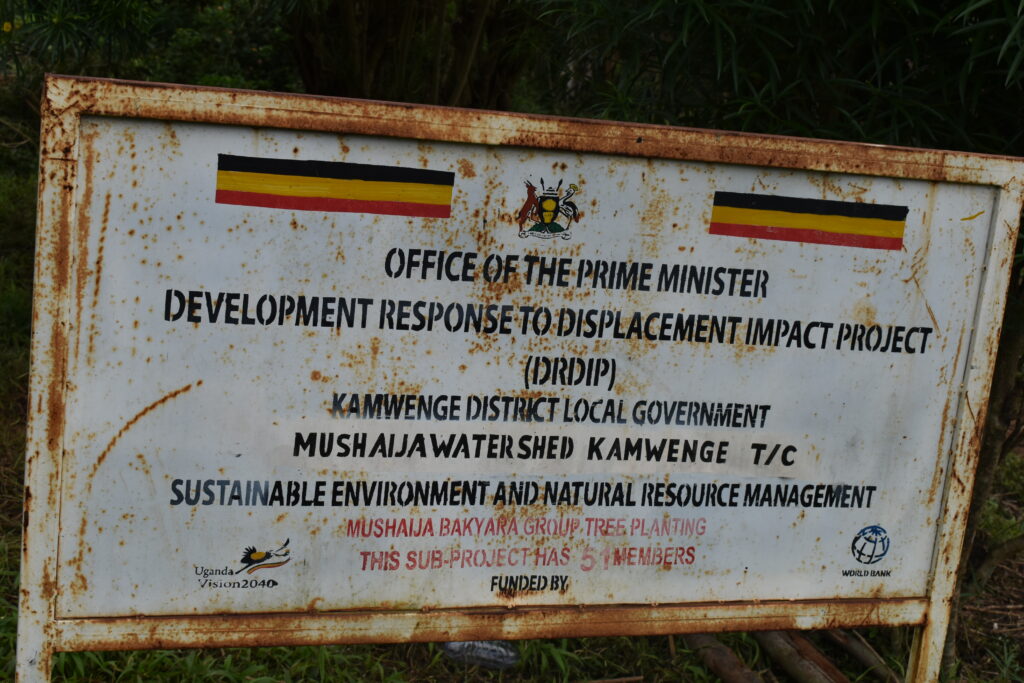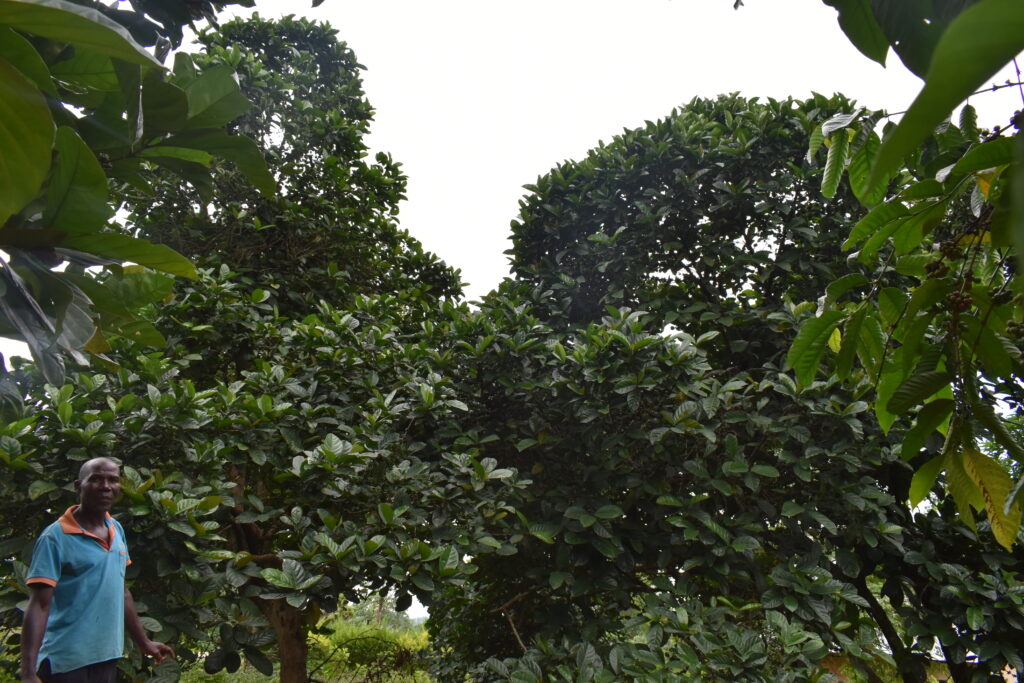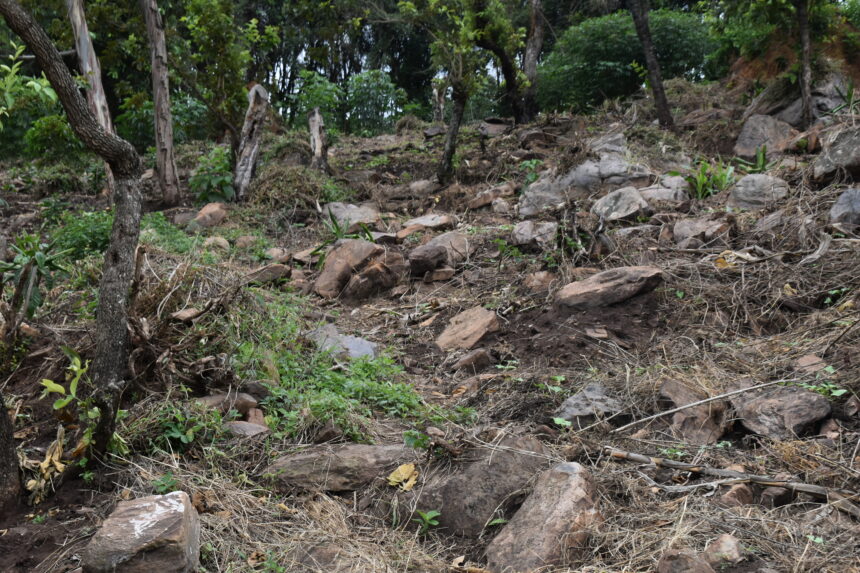From Erosion to Restoration: The Musheija Hill Community’s Environmental Journey

Mushaija Hill, in Kitonzi ward, Kamwenge town council, Kamwenge district, was once a fertile area. However, years of over-cultivation led to severe soil erosion, washing away topsoil and threatening the livelihoods of local residents. Concerned about the environmental degradation, the community sought solutions but lacked the necessary funds. Their fortunes changed when they received support from the Development Response to Displacement Impacts Project (DRDIP).
Recognizing that women play a crucial role in subsistence farming and were witnessing the effects of environmental damage firsthand, they took the initiative to rehabilitate their area. This led to the formation of the Musheija Women’s tree planting group, dedicated to protecting the environment and restoring the climate.

“Initially, the group was started by our wives, and as men, we decided to join and support them in the tree planting project,” said Kaloli Barahukwa, the catechist at St. Joseph’s Catholic Church Katibani and chairperson of the Musheija Women’s tree planting group.
“He says since they started planting trees soil erosion is no longer their problem and their environment is now cool and rain is not their problem. We had a problem of soil erosions, we always wanted a solution, but we had no capacity until (DRDIP). Our dream is to have a green environment. Besides trees, we have planted coffee, jackfruits, avocado, and mangoes that can keep our environment cool and also provide food and income to our families.”
The Musheija Women’s tree planting group now boasts 51 members, both men and women. Christistian Tusingwire, a member of the group, expressed her gratitude to the government for its support. “For sure, we have taken a step. They taught us how to save, mindset change, and we are able to take care of our families, and we have developed,” she said. Tusingwire added that, in addition to the tree planting project, each member received three goats to boost their income.

The benefits of the project are numerous. The trees planted on the hill and in individual gardens act as water catchments, slowing the runoff and preventing further erosion. “Our tree planting project has helped us to control soil erosion. Before, when it rained, water and soil would find us at home, leaving our gardens washed away and also graze our goats” Tusingwire explained.
Livian Kyampire, who practices intercropping on Mushaija Hill, shared how planting coffee and fruit trees has provided her with a livelihood and nutritious food for her family, all while contributing to environmental conservation. “I chose to plant coffee and fruits to keep a green environment and also earn an income and have fruits to feed my children,” she said.

The tree planting project has also spurred other related initiatives, such as beekeeping. George Tusingwire, a group member, coffee farmer, and beekeeper, explained, “What he does along his wife, says that he also chose to plant tall coffee Rubosta of Congole specie and this provides a green environment and nectar for bees.”
Furthermore, the project has provided a sustainable source of firewood. Women now collect dry branches for cooking, reducing the need to cut down live trees.
Harriet Niyigyira, the district community development officer for Kamwenge district, confirmed the group’s progress and emphasized the government’s commitment to empowering women. “Government programs like the Uganda Women Entrepreneurship Program (UWEP) and the Development Response to Displacement Impact Project (DRDIP) allocate specific percentages of benefits to women, often 50% or more, to empower them economically,” she stated.
“These programs have been praised by women’s groups for improving household incomes and reducing domestic violence. For example, the Musheija Women Tree planting and Goat Rearing group in Kamwenge district has seen significant growth and improved livelihoods through a government goat-rearing project.”






